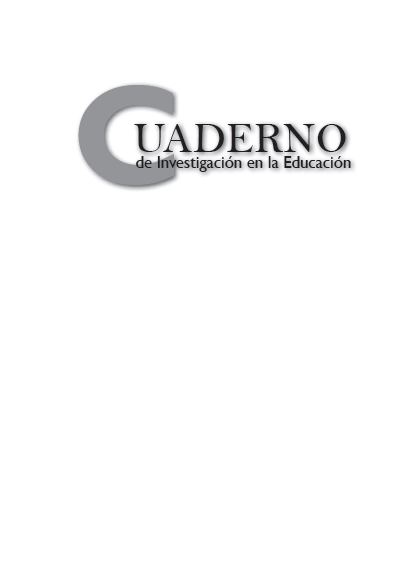Abstract
As teacher educators, we struggled to prepare our predominantly white teacher education students to effectively and compassionately teach Latino/a children. We designed a stream of lessons that afforded preservice teachers an opportunity to explore the potential inherent in learning about the in- and out-of- school lives of Latino students, and the power of incorporating what they learned into culturally and contextually relevant lessons. A critical analysis of our students‘ work, transcribed discussions, and field notes will be used to examine the benefits and challenges that arose in response to our efforts to more effectively prepare future educators to teach linguistically and culturally diverse populations.
How to cite:
Peralta, C., & Whang, P. A. (2012). Swimming upstream: Preparing future teachers to effectively and compassionately teach Latino/a children. Cuaderno de Investigación en la Educación, 27, 106-120. Retrieved from https://revistas.upr.edu/index.php/educacion/article/view/13562
References
Ayers, W. (2001). To Teach: The journey of a teacher. NY: Teacher‘s College Press.
California Department of Education. (s.f.). Academic Performance Index (API) Data Files. Retrieved from http://www.cde.ca.gov/ta/ac/ap/
Cochran, M. (1993). The International Handbook of Child Care Policies and Programs. New York: Greenwood Press.
Collier, M.D. (2002). Changing the face of teaching: Preparing educators for diverse settings. Teacher Education Quarterly, 29, 49-59.
Cummins, J. (1986). Empowering minority students: A framework for intervention. Harvard Educational Review, 56(1), 18-36.
Díaz, E. & Flores, B. (2001). Teacher as sociocultural, Sociohistorical mediator, Teaching to the potential. In M. Reyes & J. J. Halcón (Eds.), The best for our children. Critical perspectives on literacy for Latino students (pp. 29-47). New York, N.Y: Teachers College Press.
Gay, G. (2000). Culturally responsive teaching: Theory, research and practice. NY: Teachers College Press.
Katz, S., & Kohl, H. (2002, December 9). Banishing bilingualism. The Nation, 275, 6-7.
Martin, J. R. (2000). Coming of age in academe: Rekindling women‘s hopes and reforming the academy. New York: Routeldge.
McNeil, L. & Valenzuela, A. (2001). The harmful impact of the TAAS system of testing in Texas: Beneath the accountability rhetoric. In M. Kornhaber & G. Orfield (Eds), The high effects of high stakes testing on minority youth (pp. 127-150). NY: Century Foundation.
O‘Loughlin, M. (1995). Daring the imagination: Unlocking voices of dissent and possibility in teaching. Theory into Practice, 34, 107-116.
Sleeter, C. E. (1992). Keepers of the American Dream: A study of staff development and multicultural education. Washington, D.C.: Falmer Press.
Tharp, R. G. & Gallimore, R. (1989). Challenging cultural minds. London: Cambridge University Press.
Trueba, H. (1987). Success or failure? Learning and the language minority students. New York: Harper & Row.
Veléz-Ibañez, C. & Greenberg, J. B. (1992). Formation and transformation of funds of knowledge among U.S.-Mexican households. Anthropology and Education Quarterly 23(4), 313-335.
The contents published in the Puerto Rico Journal of Education is freely distributed under open access practices, in accordance with the Creative Commons license, Attribution-NonCommercial 4.0 International (CC BY-NC 4.0). Through these principles, the journal and its authors allow readers to access, reproduce and share articles in full text. Users should give credit to authors in a reasonable way without suggesting they have their support. Under no circumstances, readers may make use of the contents for commercial purposes. The authors retain copyright on their works.

